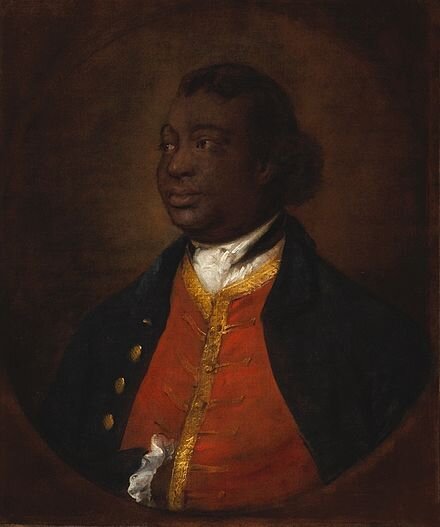Charles Ignatius Sancho (c. 1729? – 14 December 1780) was a British composer, actor, and writer. He is the only Briton of African heritage known to have been eligible and voted in an 18th century general election through property qualifications. He gained fame in his time as "the extraordinary Negro", and to eighteenth-century British abolitionists he became a symbol of the humanity of Africans and immorality of the slave trade.[4] The Letters of the Late Ignatius Sancho, an African, edited and published two years after his death, is one of the earliest accounts of African slavery written in English by a former slave.
Charles Ignatius Sancho was born on a slave ship crossing the Atlantic Ocean, in what was known as the Middle Passage. His mother died not long after in the Spanish colony of New Granada, corresponding to modern Colombia, Ecuador, Panama, and Venezuela. His father reportedly took his own life rather than live as a slave. Sancho's owner took the young orphan, barely two years old to England and gave him to three unmarried sisters in Greenwich, where he lived from ca. 1731 to 1749. John Montagu, 2nd Duke of Montagu (of the first creation) (1690–1749), impressed by Sancho's intellect, frankness, and his amiability, not only encouraged him to read, but also lent him books from his personal library at Blackheath. Sancho's informal education made his lack of freedom in Greenwich unbearable, and he ran away to the Montagus in 1749. For two years until her death in 1751, Sancho worked as the butler for Mary Montagu (née Churchill), Duchess of Montagu, at Montagu House, where he flourished by immersing himself in music, poetry, reading, and writing.[5][6] At her death in 1751 he received an annuity of £30 and a year's salary, which he quickly squandered.[5]
Charles Ignatius Sancho (c. 1729? - 14 December 1780) was a British composer, actor, and writer. He is the only Briton of African heritage known to have been eligible and voted in an 18th century general election through property qualifications.
